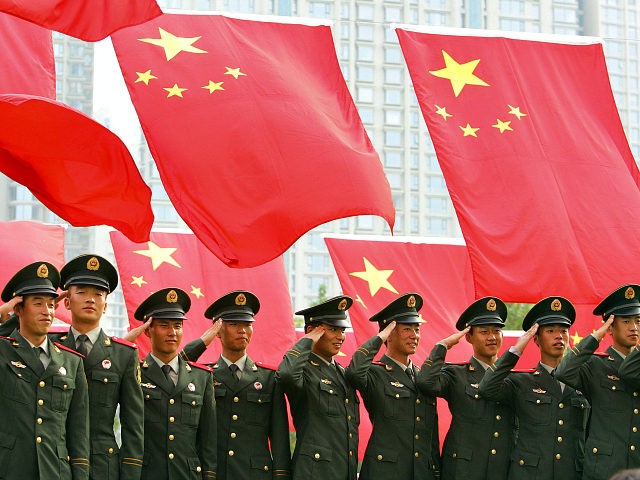A study published this week by researchers from Fulbright University Vietnam and the London-based Henry Jackson Society revealed much deeper ties between employees of the Huawei telecom company and the Chinese People’s Liberation Army (PLA) than the corporation has previously admitted.
The authors said their evidence supports “valid concerns about the relationship between Huawei, the PLA, and concerns about intelligence gathering.”
Data for the study was harvested from a massive trove of Chinese resumes that were leaked online last year because Chinese companies and employment agencies have remarkably poor data security for their employee databases, leaving some of their servers exposed to the Internet without even rudimentary password protection. Researchers from computer security companies were able to rummage through employment files and download millions of Chinese resumes without much effort.
The total haul compiled by Western investigators was over 590 million resumes. Researchers from the Henry Jackson Society project extracted 25,000 resumes belonging to current or former employees of Huawei, searched them for keywords relating to the Chinese military and found over 100 hits.
Given enough time, the authors were confident they would find many more Huawei resumes in the gigantic data trove but had to settle for a subset of 25,000 given the urgency of their task.
“In an ideal world, we would take 6-12 months and turn out an in-depth and comprehensive study. The reality is that countries are making crucial decisions right now involving Huawei,” author Christopher Balding, an associate professor at Fulbright University Vietnam, explained. The Henry Jackson Society has strongly urged the British government to avoid using Huawei telecom equipment because of the security risks involved.
Balding highlighted a few especially disturbing Huawei resumes (CVs), as summarized by CNBC on Monday:
One CV appeared to show a person who simultaneously held a position at Huawei and a teaching and research role at a military university through which they were employed by the Chinese People’s Liberation Army. Balding linked that employee to a section in the PLA that is responsible for the Chinese military’s space, cyber, and electronic warfare capabilities.
“The circumstantial evidence appears quite strong to support valid concerns about the relationship between Huawei, the PLA, and concerns about intelligence gathering,” Balding said in the paper.
Another CV describes an individual who worked at Huawei but was a representative of a government entity responsible for espionage and counterintelligence. That individual “engaged in behavior that describes planting information capture technology or software on Huawei products,” according to the study.
Elaborating on the research in an email to CNBC, Balding said he had not seen the word “backdoor” in a CV but there is a “wealth of other technical terminology that indicates a pattern of this general type of behavior is taking place.”
Balding added that he does not possess copies of explicit orders from the Chinese government directing Huawei employees to commit acts of espionage, but the CVs he uncovered “do talk of behavior such as information interception and we know of instances where a Huawei employee holds a dual position in the PLA Strategic Support Force which oversees the electronic warfare and similar non-traditional warfare units.”
Huawei responded to the report by saying it could not verify the accuracy of the data employed in the study and insisting it strictly requires job applicants with military, intelligence, or government backgrounds to prove they have ended their relationships with such entities. The company then lambasted Balding for making “speculative statements” about the resumes he discovered.
Chinese state media pitched in to defend Huawei by arguing that both the company and the Chinese military apparatus are enormous, and former members of the military naturally wish to apply their skills to civilian employment, so there is nothing sinister about a sizable number of Chinese military and intelligence veterans ending up on Huawei’s payroll.
Balding addressed these criticisms by insisting he is not making wild accusations or exaggerating the significance of some Huawei employees having military backgrounds.
“We are not arguing that hiring ex-military personnel (means) your organization is an espionage front. I simply do not say anything of the sort but that is what they are trying to conflate. I am saying, in Huawei personnel words on their CVs, they held dual positions for Chinese intelligence gathering and electronic warfare units while working for Huawei either taking orders from or coordinating with the Chinese state. That is what is profoundly worrisome,” he said in an email to CNBC.
British diplomat Charles Parton told Canada’s National Post the new study is a “smoking gun” because the cases highlighted by Balding “give the lie to Huawei’s claim that there is no evidence that they help the Chinese government.”

COMMENTS
Please let us know if you're having issues with commenting.